
Communicating and sharing our work
DG’s publication library includes resources, reports, white papers, policy briefs based on our data landscaping work, and more.
Written to be useful and usable, our publications are where we share learnings on barriers and incentives to data use, explore new ideas, and contribute to data policy and strategy conversations.
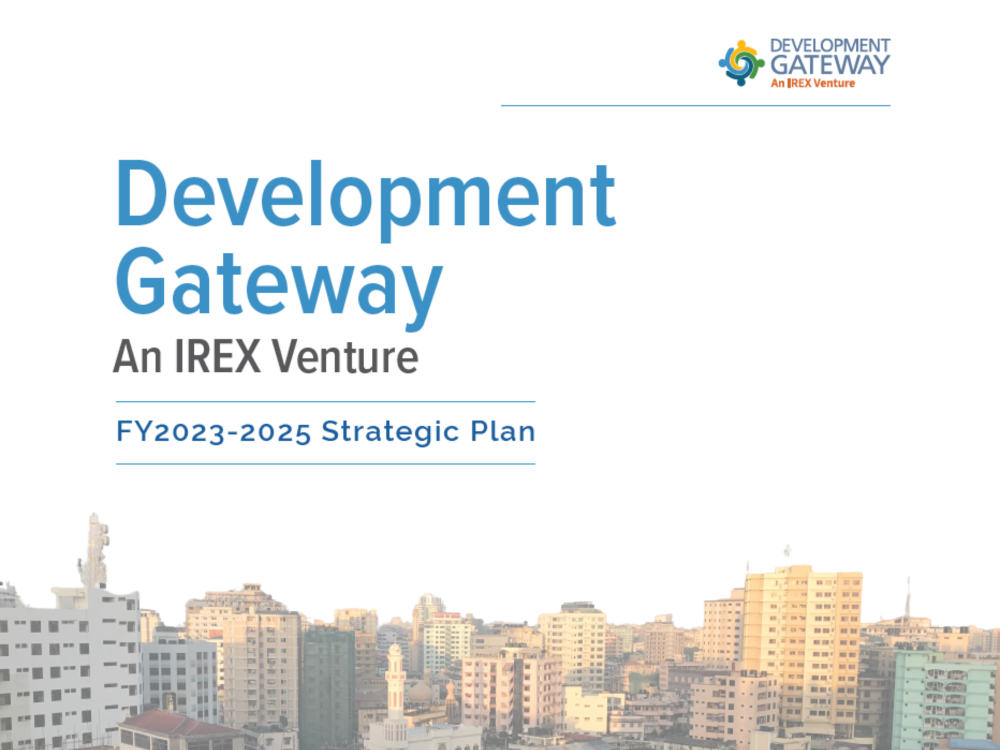
Strategic Plan FY2023 to 2025
Building on 20+ years of experience, Development Gateway announces its FY23-25 Strategic Plan. DG will expand its role as a global leader in both data and digital for development, working toward a digital development agenda that builds trust between institutions and the constituents they serve. This strategy lays the foundation for how we will achieve that vision.
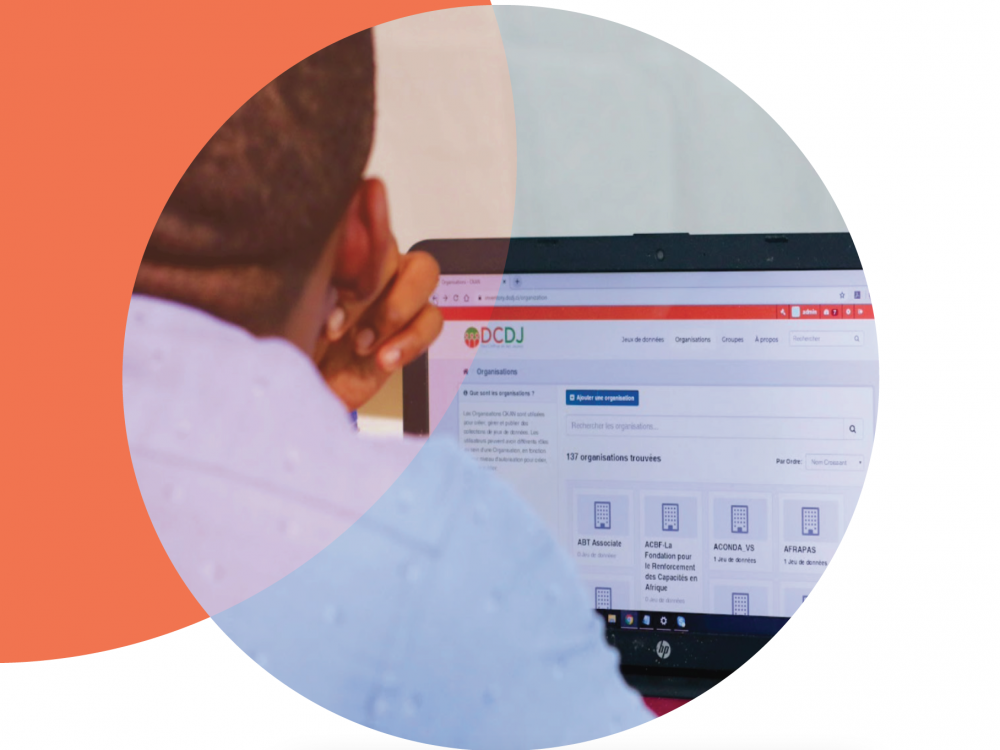
Developing a Data Inventory
For Des Chiffres et Des Jeunes (DCDJ) in Côte d’Ivoire, DG worked with partners to create a data inventory specific to the HIV/AIDS context in the country, including topics related to health, gender equality, education, and economic growth. This resource is a guide for developing your own data inventory from ideation, to launch, and beyond.
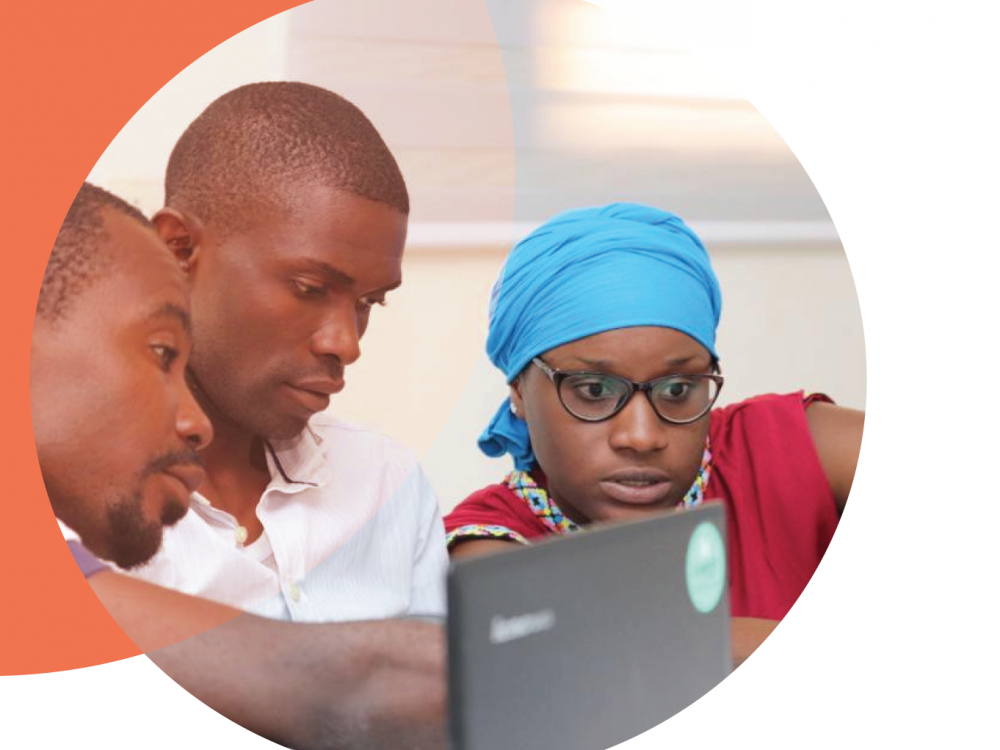
Designing Data Fellowships
This resource is for community leaders, organizations, or government agencies seeking to build Data Fellowship programs. It outlines the need for and essential considerations to develop such fellowships with specific examples and lessons learned by the Des Chiffres et Des Jeunes (DCDJ) program over three cohorts of Fellows in Côte d’Ivoire.
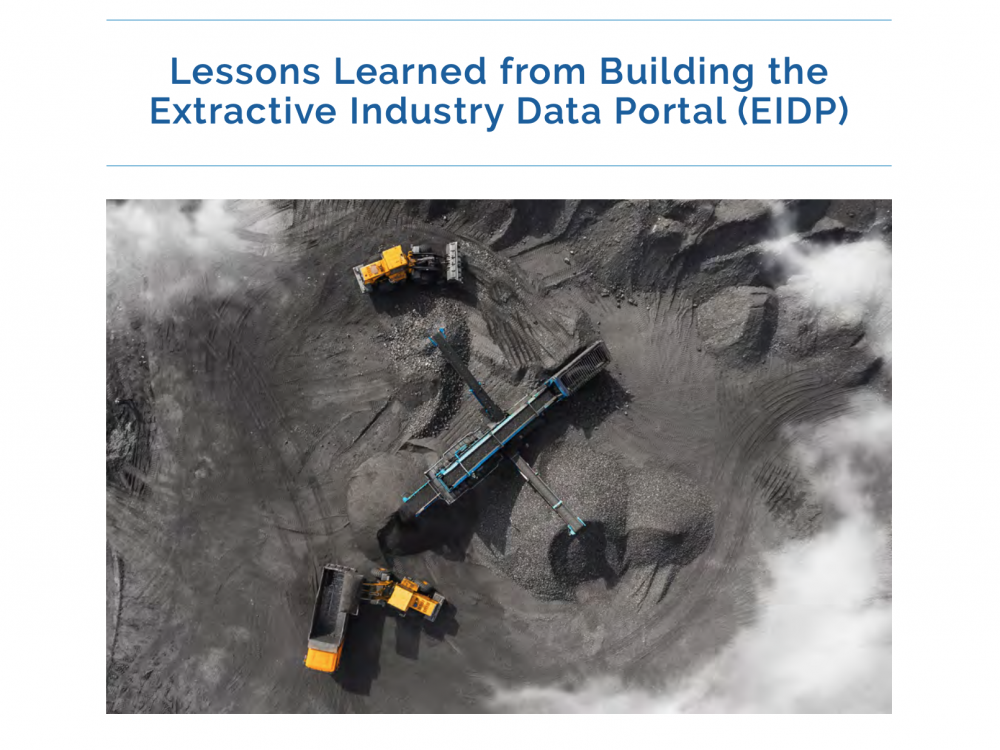
Digitizing Extractive Industries Data
This paper shares the triumphs and challenges of building Extractive Industry Data Portals (EIDPs), tools that can streamline the annual production of extractive industries (EI) sector audit reports. Findings are based on technical assessments conducted by Development Gateway in Guinea, Senegal, and Nigeria; and on DG’s development of a first-phase EIDP in Nigeria.
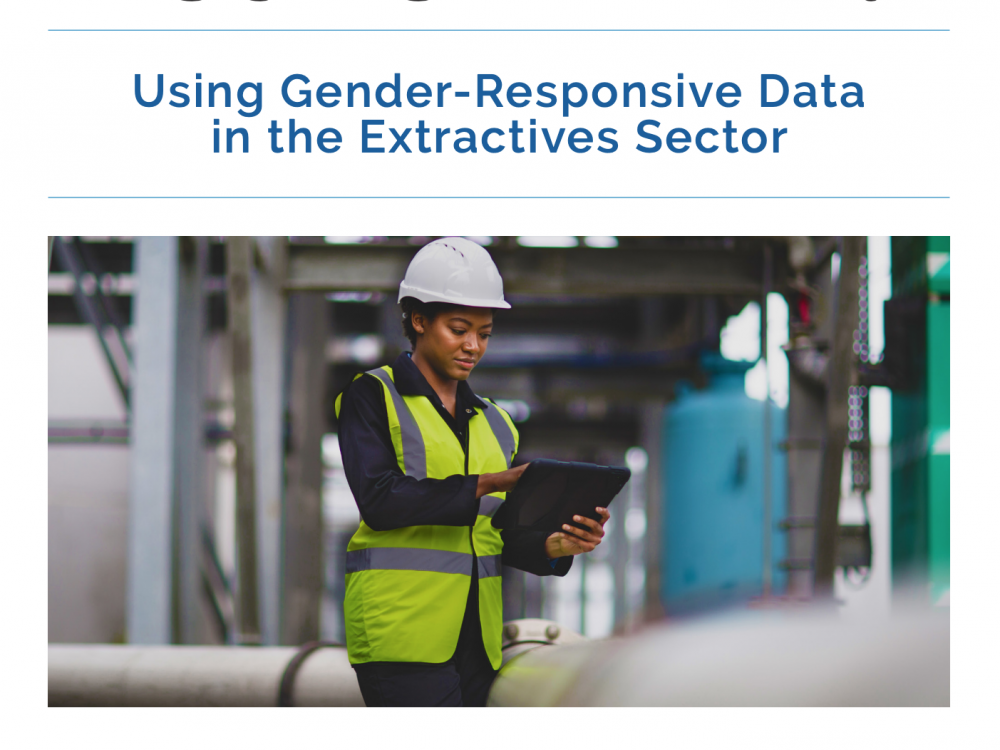
So You’ve Got Gender Data, Now What Will You Do With It?
This policy paper, in English and French, explores the role of gender data and women in the extractives industry (EI). Its goal is to delve into how gender data can be used to improve inclusion, engagement, and support for women in the extractive industries (EI). Funded by the Ford Foundation, this paper is the first in a two-part Policy Paper series that builds on Development Gateway's work in the extractive industry data management. The paper includes lessons learned, gender data findings, and recommendations through our work with Women in Mining Guinea.
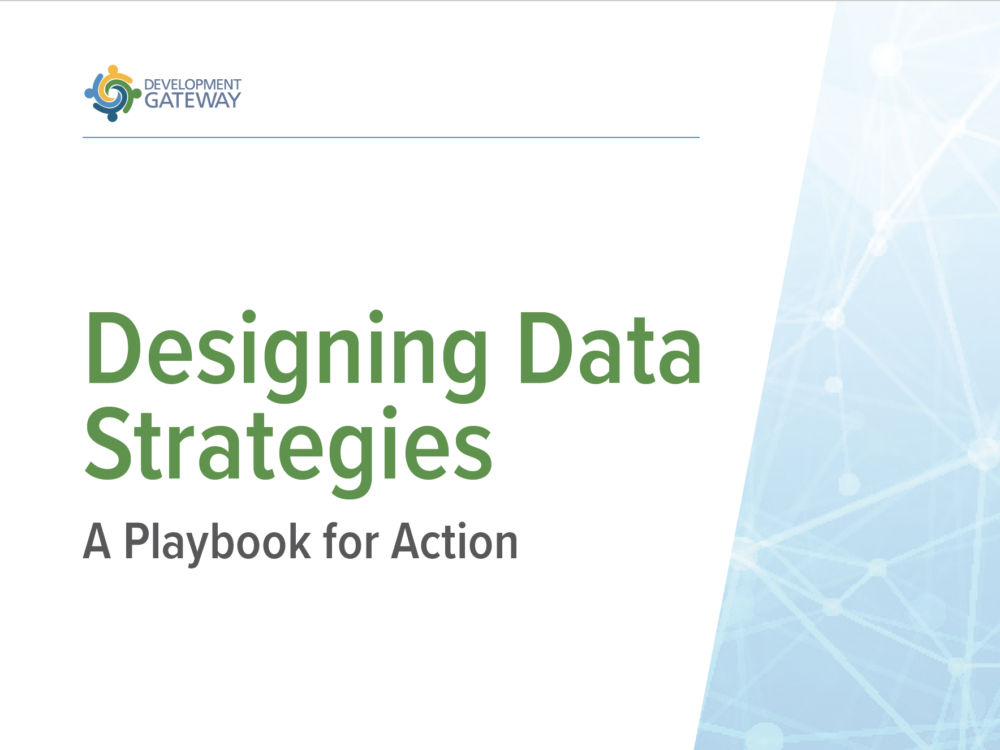
Designing Data Strategies: A Playbook for Action
For most global development and humanitarian agencies, data has historically been either a niche activity or fragmented task. But in the era of a ‘data revolution for sustainable development’ – and in a time of increasing financial scrutiny – institutions increasingly consider data and digital to be a strategic asset. This paper aims to provide a structured overview of lessons learned that may be used by those seeking to develop and implement a data strategy within international development and humanitarian organizations.
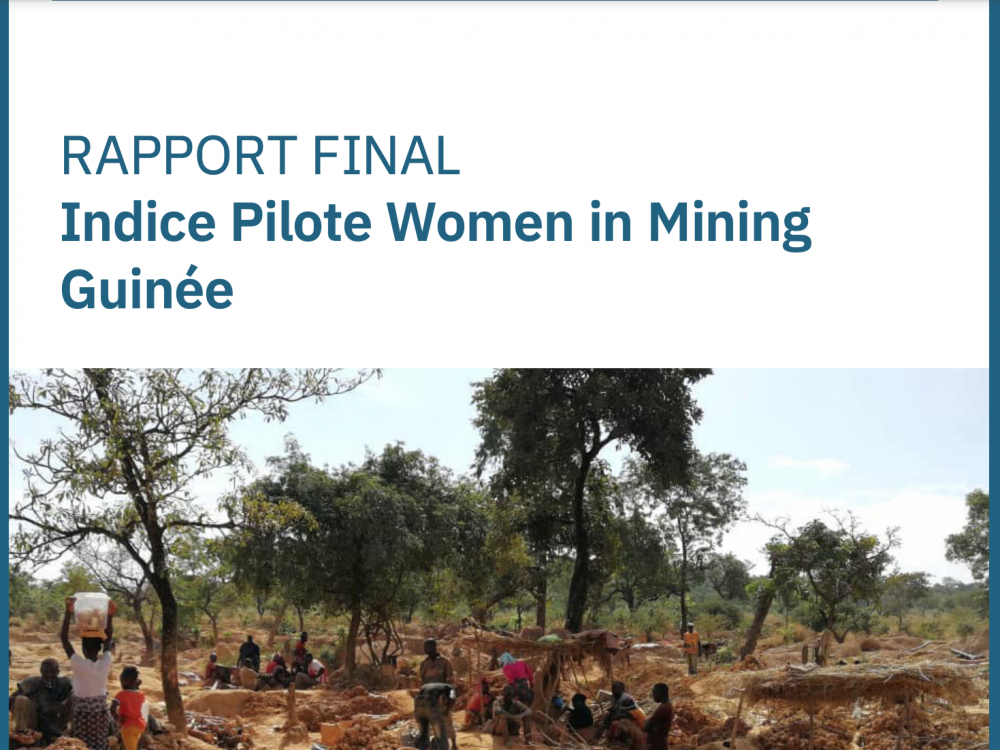
Final Report: Women in Mining Guinea Pilot Index
Final reports following DG's assessment and pilot index for Women in Mining Guinea. The index was designed to capture the real obstacles hindering women's involvement and empowerment in the mining sector. The goal is to provide stakeholders with the evidence needed to implement sustainable, gender-inclusive solutions, and to serve as an M&E tool to annually assess the progress made towards improving women’s living conditions in the industrial and artisanal mining industry.
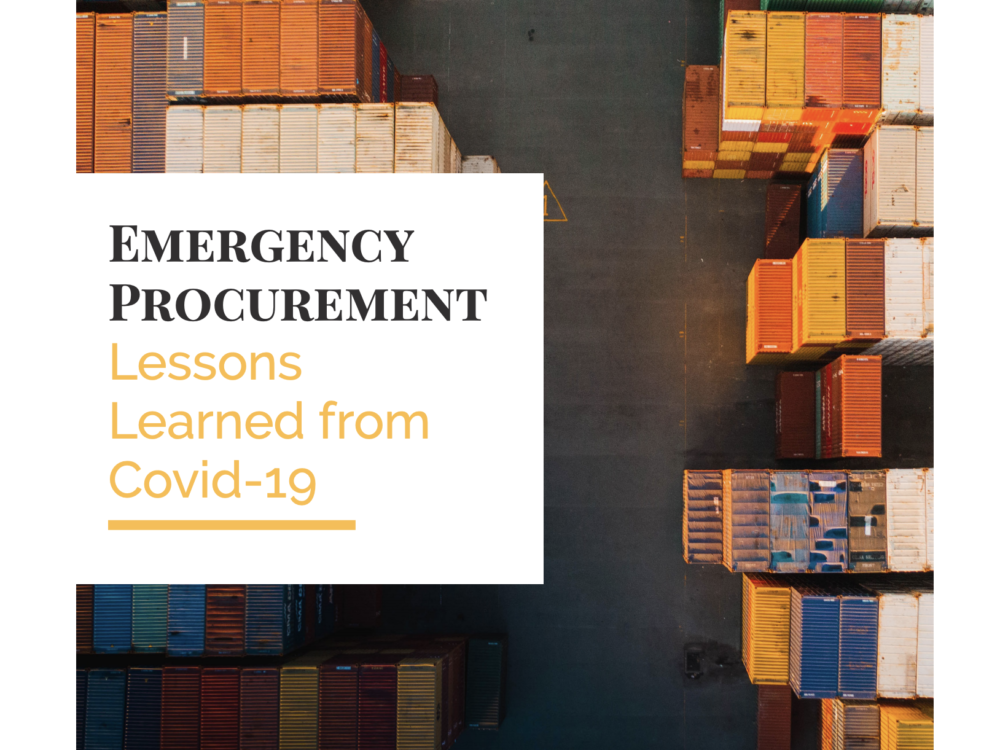
Emergency Procurement: Lessons Learned from Covid-19 Report & Indicator Framework
DG and the Global Digital Marketplace Programme partnered to identify ways to improve government digital procurement effectiveness, efficiency, and transparency. When Covid-19 flipped the world on its head, we developed this roadmap for smarter emergency public procurement. We also provide an indicator framework that governments can use to assess current readiness for purchasing during an emergency, identify focus areas for improvement, and monitor progress.
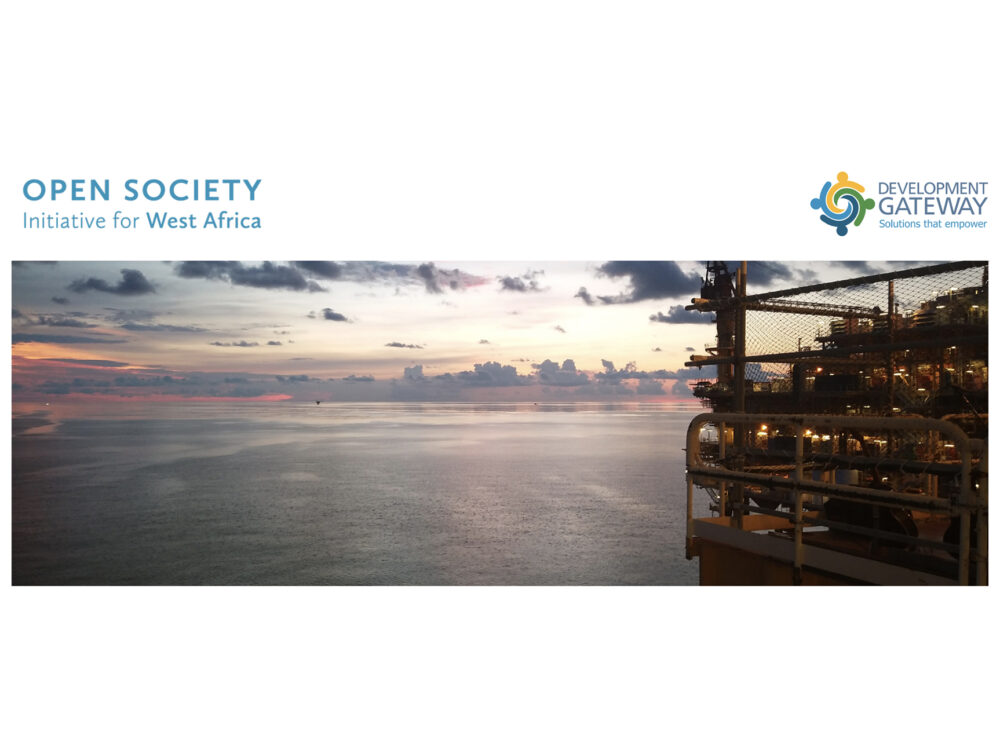
Extractives Industry Data Portal Assessments – Senegal, Nigeria & Guinea
Starting in June 2018, in partnership with Open Society Initiative for West Africa (OSIWA), DG assessed the extractive data landscape in Senegal, Nigeria and Guinea to determine the feasibility of developing an Extractives Industry Data Portal (EIDP) for each country. These reports in French and English detail the findings and recommendations.
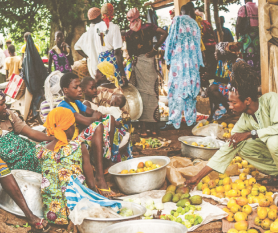
Delivering Data Where it Counts
Based on case studies that document drivers and the value of subnational data programming, DG and DCLI have developed a set of principles for subnational data use. These principles – and the collection of case studies – are a living document